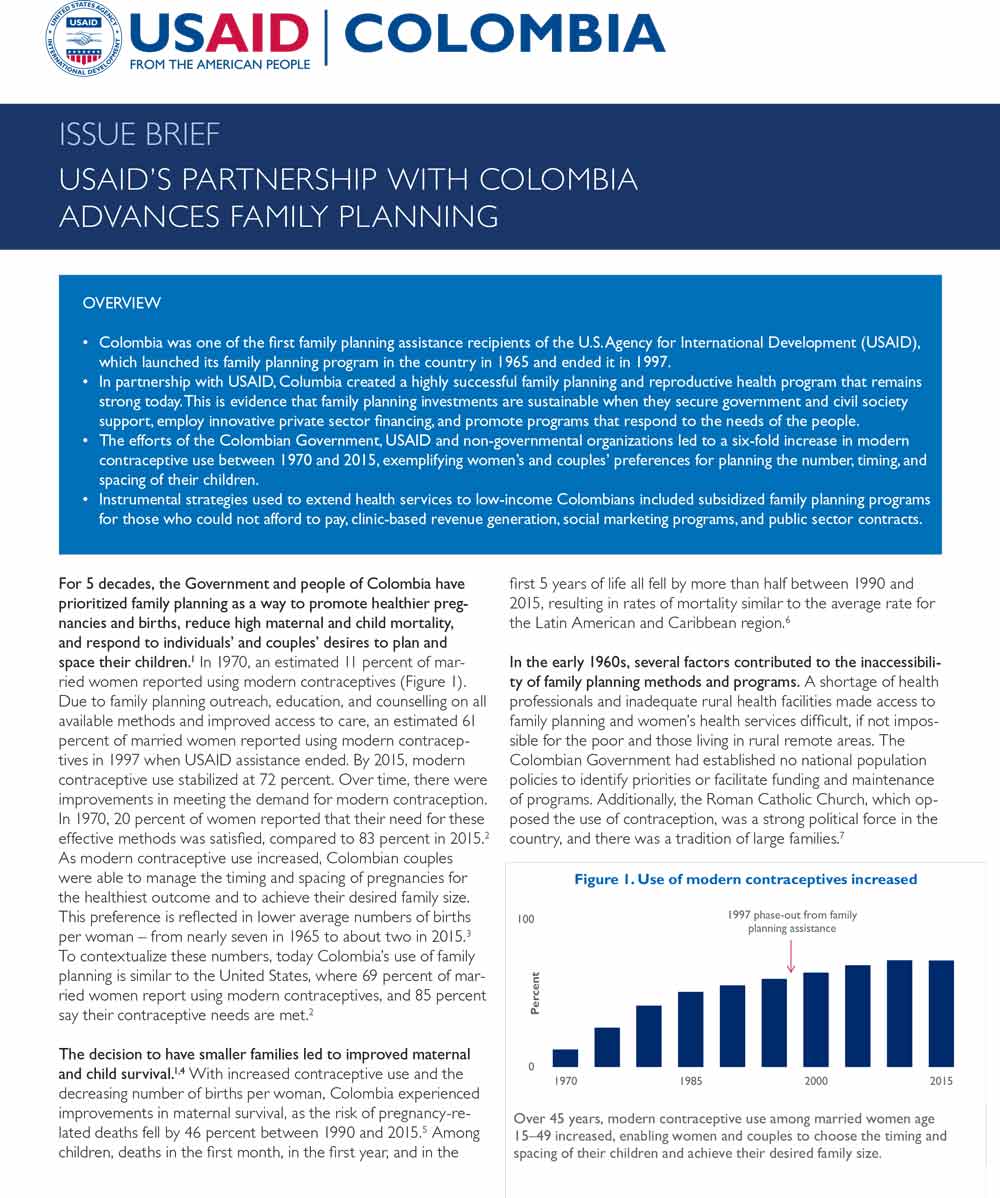Home » What We Do » Global Health » Family Planning » Resources » USAID's Partnership with Colombia Advances Family Planning
- What We Do
- Agriculture and Food Security
- Democracy, Human Rights and Governance
- Economic Growth and Trade
- Education
- Ending Extreme Poverty
- Environment and Global Climate Change
- Gender Equality and Women's Empowerment
- Global Health
- Water and Sanitation
- Working in Crises and Conflict
- U.S. Global Development Lab
For 5 decades, the Government and people of Colombia have prioritized family planning as a way to promote healthier pregnancies and births, reduce high maternal and child mortality, and respond to individuals’ and couples’ desires to plan and space their children.
Overview
- Colombia was one of the first family planning assistance recipients of the U.S. Agency for International Development (USAID), which launched its family planning program in the country in 1965 and ended it in 1997.
- In partnership with USAID, Colombia created a highly successful family planning and reproductive health program that remains strong today. This is evidence that family planning investments are sustainable when they secure government and civil society support, employ innovative private sector financing, and promote programs that respond to the needs of the people.
- The efforts of the Colombian Government, USAID, and non-governmental organizations led to a six-fold increase in modern contraceptive use between 1970 and 2015, exemplifying women’s and couples’ preferences for planning the number, timing, and spacing of their children.
- Instrumental strategies used to extend health services to low-income Colombians included subsidized family planning programs for those who could not afford to pay, clinic-based revenue generation, social marketing programs, and public sector contracts.








Comment
Make a general inquiry or suggest an improvement.